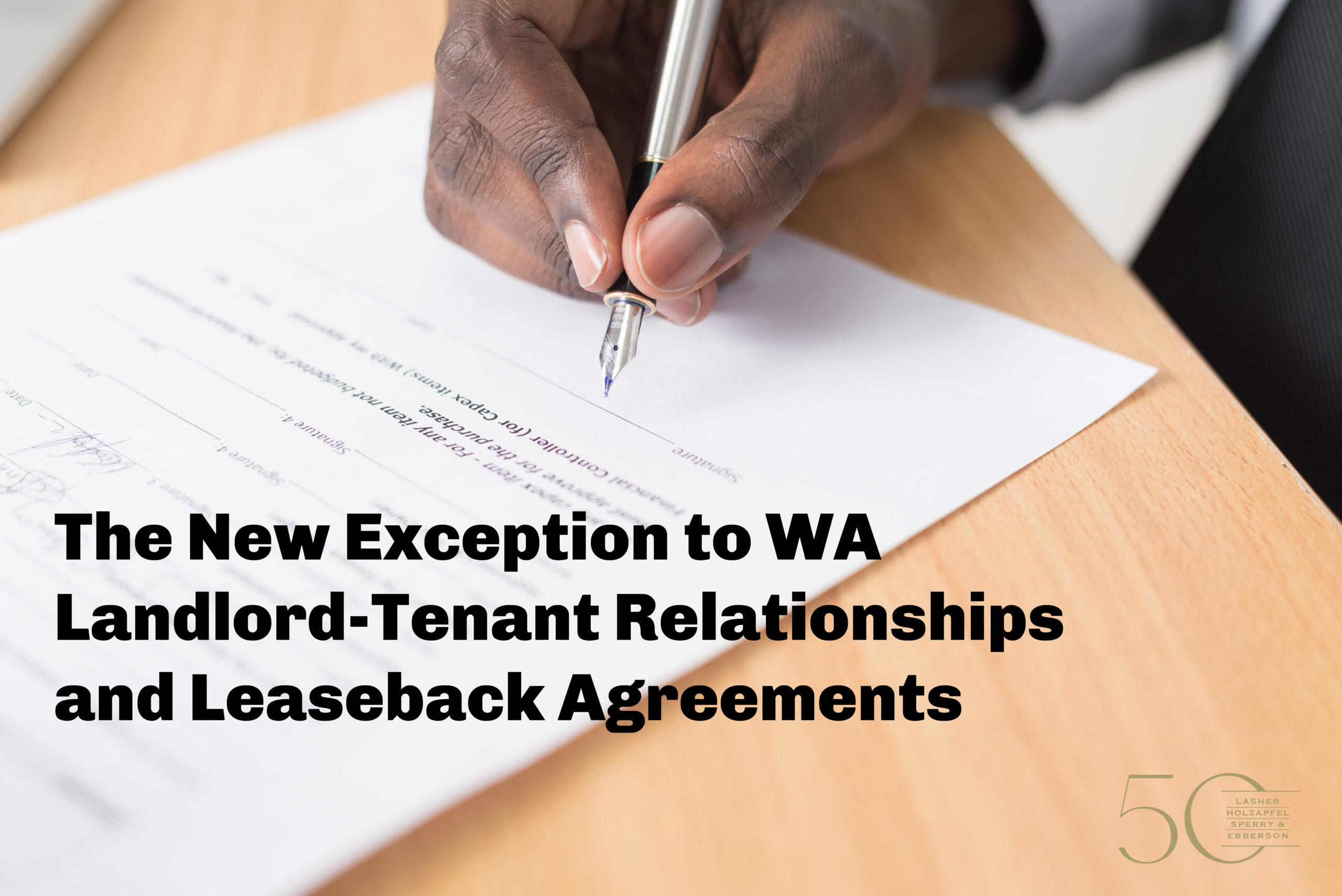The New Exception to Washington Landlord-Tenant Relationships and Leaseback Agreements

Posted on July 31, 2023 by Harman Bual
A Leaseback Agreement or a “rentback agreement” is an agreement between a buyer and seller of a property that permits the seller to continue living in the property for a period while paying rent to the buyer. Leaseback agreements are usually short-term arrangements that provide sellers with additional time to move out of the property without delaying the close of escrow to complete the sale. While this is often a popular option for sellers seeking to purchase a new home after the sale of their current home, it is important to remember that leasebacks turn new homebuyers into landlords and sellers into renters during this period of transition.
The Residential Landlord Tenant Laws encompassed in RCW 59.18 et. seq. encompasses all landlord tenant relationships within the State of Washington, including leasebacks. Where leasebacks turn new homebuyers into landlords, that means they are legally obligated to the same extensive notice requirements as traditional landlords of rental property. Due in part to COVID‑19, state and city legislatures have enacted various statutes and codes requiring extensive notice periods to evict tenants as well as just-cause requirements. However, under RCW 59.18.040, there are specific exceptions for living arrangements that the legislature did not intend to be regulated by landlord-tenant laws, and that do not require the same notice requirements to evict an individual residing in a dwelling.
Throughout COVID‑19, these exceptions did not include leaseback agreements. Instead, new homebuyers with this type of agreement in place were treated like traditional landlords under Washington statute and local city code. That meant that during COVID‑19, new homeowners with leaseback agreements were subject to the same eviction moratorium and notice requirements that prevented intentional landlords from evicting tenants.
In April 2023, Governor Jay Inslee signed House Bill 1070 which effectively provides the first revision to RCW 59.18.040 since 1989. Effective July 23, 2023, RCW 59.18.040(3) will now include “leaseback agreements” as an exception to the Residential Landlord Tenant Laws encompassed in the Revised Code of Washington chapter 59.18 et. seq. Starting July 23, 2023, RCW 59.18.040(3) provides that
Occupancy under a written rental agreement entered into by a seller and buyer of a dwelling unit, for the seller to retain possession of the dwelling unit after closing of the sale of the dwelling unit, if the conditions in (a) through (c) of this subsection are satisfied.
Subsections (a) through (c) provide that a leaseback agreement is not subject to landlord-tenant laws if the rental period is no more than 3 months after closing, the buyer does not accept rent after three months from closing, at the time of closing the dwelling was not a distressed home, and if the seller was represented by an attorney or by a real estate broker during the negotiation of the sale or at the time of closing. Under this new protection for new homebuyers, the homebuyers are required to meet and abide by the conditions set forth in RCW 59.18.040(3) or they lose the protections offered by the exception.
If you have questions about Leaseback Agreements or other real estate contracts, the Business Litigation team at Lasher is ready to assist.

